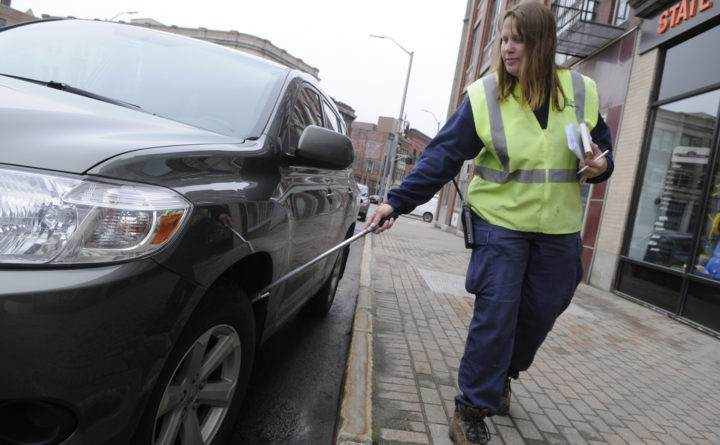
DETROIT — Marking tires to enforce parking rules is like entering property without a search warrant, a federal court said Monday as it declared the practice unconstitutional in Michigan and three other states.
Alison Taylor had received more than a dozen $15 tickets for exceeding the two-hour parking limit in Saginaw. The city marks tires with chalk to keep track of how long a vehicle is parked. Her lawyer argued that a parking patrol officer violated the Fourth Amendment right against unreasonable searches.
The purpose of marking tires was to “raise revenue,” not to protect the public against a safety risk, the 6th U.S. Circuit Court of Appeals said.
“The city does not demonstrate, in law or logic, that the need to deter drivers from exceeding the time permitted for parking — before they have even done so — is sufficient to justify a warrantless search under the community caretaker rationale,” the court said.
Saginaw’s city manager didn’t immediately reply to a message seeking comment.
Taylor’s attorney, Philip Ellison, began researching the issue when another lawyer complained that his tire was marked while he sat in his car. It’s apparently a common practice in downtown Saginaw, where there are no meters to enforce time limits.
He argued that marking tires was similar to police secretly putting a GPS device on a vehicle without a proper warrant, which was the subject of a 2012 U.S. Supreme Court ruling.
“We don’t think everyone deserves free parking,” Ellison told The Associated Press. “But the process Saginaw selected is unconstitutional. … I’m very glad the three judges who got this case took it seriously. It affects so many people.”
This article originally appeared on www.bangordailynews.com.







